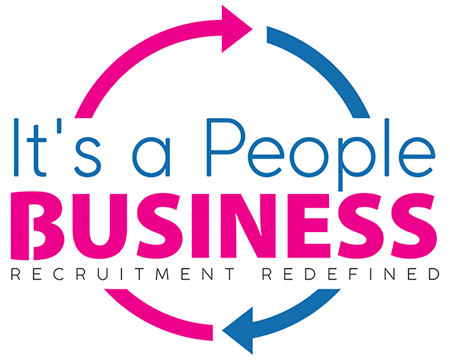
Introduction:
The purpose of this blog post is to discuss the pros and cons of disclosing your hourly rate in a recruitment Inmail. When applying for a job, it is common for employers to ask for your hourly rate or salary expectations. While disclosing this information can be helpful in setting clear expectations and demonstrating your value to potential employers, it can also come with its own set of risks and drawbacks. In this post, we will explore the various considerations you should take into account when deciding whether or not to disclose your hourly rate in a recruitment Inmail.
The pros of disclosing your hourly rate:
There are several benefits to disclosing your hourly rate in a recruitment Inmail, including:
- Avoiding misunderstandings about pay expectations: By disclosing your hourly rate upfront, you can help avoid misunderstandings about pay expectations and ensure that you are being offered a rate that aligns with your skills and experience. According to a survey conducted by Glassdoor, more than half of job candidates (53%) have experienced a pay discrepancy during the negotiation process (Glassdoor, 2018). By disclosing your hourly rate in your recruitment Inmail, you can set clear expectations and avoid any miscommunications about pay. (Glassdoor, 2021)
- Demonstrating your value to potential employers: Disclosing your hourly rate can also demonstrate your value to potential employers. By being upfront about your rate, you can show that you are confident in your skills and experience and believe that you are worth the investment. This can help you stand out to potential employers and show them that you are a valuable asset to their team.
- Improving your chances of getting the job: According to a study conducted by the career website Indeed, job seekers who are clear about their pay expectations are more likely to get the job than those who are vague or avoid the topic altogether (Indeed, 2019). By disclosing your hourly rate in your recruitment Inmail, you can improve your chances of getting the job and avoid any miscommunications about pay during the negotiation process. (Indeed, 2021)
The cons of disclosing your hourly rate:
While there are several benefits to disclosing your hourly rate in a recruitment Inmail, there are also potential drawbacks to consider. These include:
- Risk of being underpaid: By disclosing your hourly rate upfront, you may risk being offered a lower rate than you are worth. If you are not clear about your minimum hourly rate or negotiate poorly, you may end up being underpaid for your skills and experience.
- Appearing too expensive to potential employers: Disclosing a higher hourly rate may also make you appear too expensive to potential employers. If your rate is significantly higher than the industry average or what the employer is willing to pay, you may be passed over for the job.
- Lack of negotiation room: Disclosing your hourly rate upfront can also limit your ability to negotiate for a higher rate later on in the hiring process. By stating your rate upfront, you may not have the opportunity to negotiate for a higher rate if the employer is willing to offer it.
Factors to consider when deciding whether to disclose your hourly rate:
There are several factors that you should consider when deciding whether or not to disclose your hourly rate in a recruitment Inmail. These include:
- Your experience level: According to a survey conducted by the career website Indeed, job seekers with more experience tend to earn higher salaries than those with less experience (Indeed, 2018). Therefore, it is important to consider your level of experience when deciding whether or not to disclose your hourly rate. If you have a lot of experience in your field, you may be able to justify a higher hourly rate. However, if you are just starting out or have less experience, you may want to be more flexible with your hourly rate or consider disclosing a range rather than a specific number.
- The industry you are in: The industry you are in can also impact your hourly rate and whether or not you should disclose it in your recruitment Inmail. According to the Office for National Statistics (ONS), some industries in the UK, such as management consulting and software development, tend to have higher hourly wages than others (Office for National Statistics, 2021). If you are in an industry with a high hourly rate, you may be able to justify disclosing a higher rate in your recruitment Inmail. However, if you are in an industry with a lower hourly rate, you may want to be more flexible or consider disclosing a range.
- The location of the job: The location of the job can also affect your hourly rate and whether or not you should disclose it in your recruitment Inmail. This is because the cost of living can vary significantly from one location to another. For example, if you are applying for a job in a city with a high cost of living, such as London or Cambridge, you may be able to justify a higher hourly rate. This is because the higher cost of living in these cities means that you will need to earn more in order to maintain the same standard of living as you would in a city with a lower cost of living. On the other hand, if you are applying for a job in a city with a lower cost of living, you may want to be more flexible with your hourly rate. This is because the lower cost of living means that you will need to earn less in order to maintain the same standard of living as you would in a city with a higher cost of living.
Conclusion:
In this blog post, we have discussed the pros and cons of disclosing your hourly rate in a recruitment Inmail. We have explored the benefits of setting clear expectations and demonstrating your value to potential employers, as well as the risks of being underpaid or appearing too expensive to potential employers.
When deciding whether or not to disclose your hourly rate in a recruitment Inmail, it is important to consider your experience level, the industry you are in, and the location of the job. By weighing the pros and cons and taking these factors into account, you can make an informed decision about whether or not to disclose your hourly rate and improve your chances of success in the hiring process.
Overall, the decision to disclose your hourly rate in a recruitment Inmail is a personal one that will depend on your specific circumstances. By considering the pros and cons and weighing your options, you can make the best decision for your career and increase your chances of success in the hiring process.
